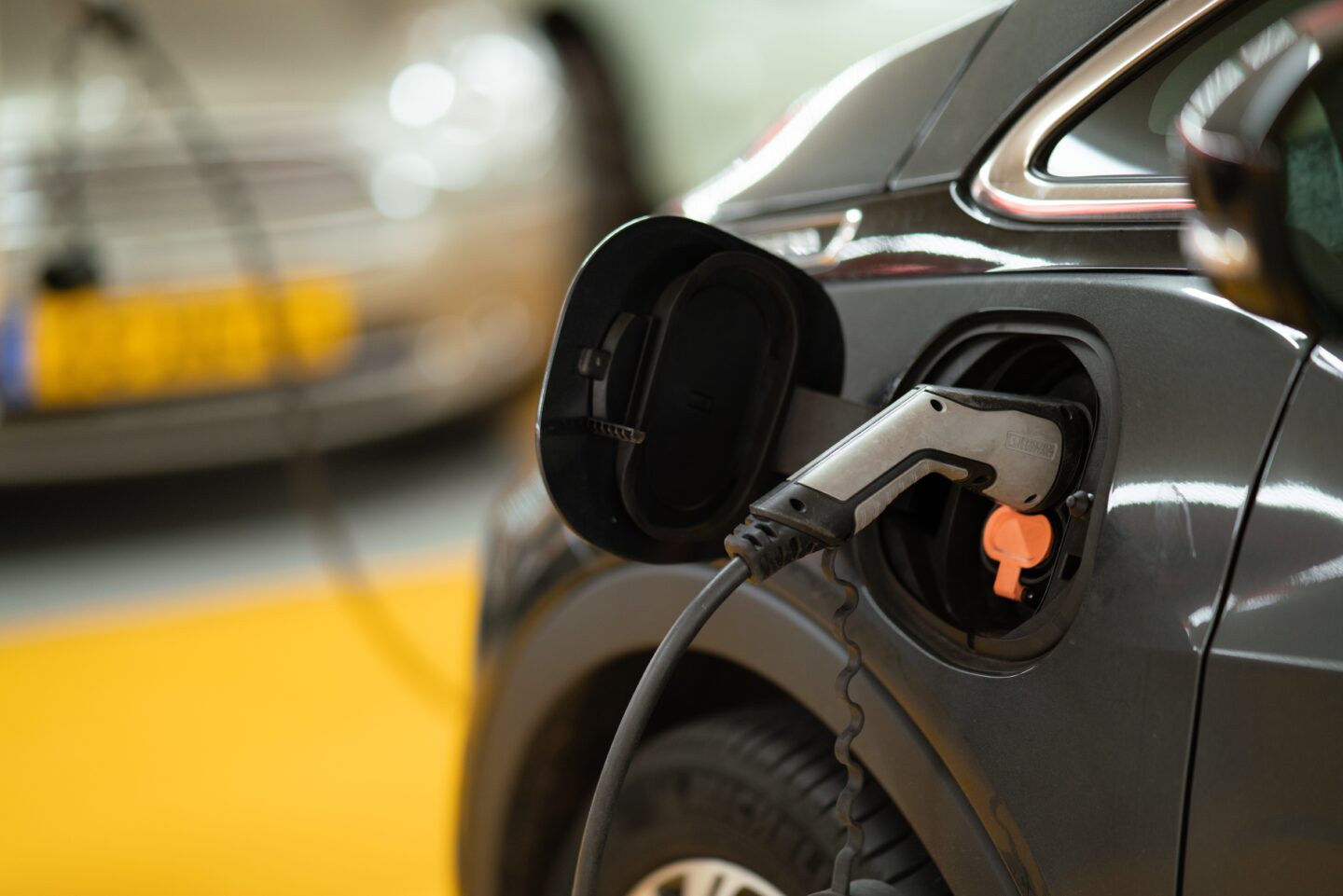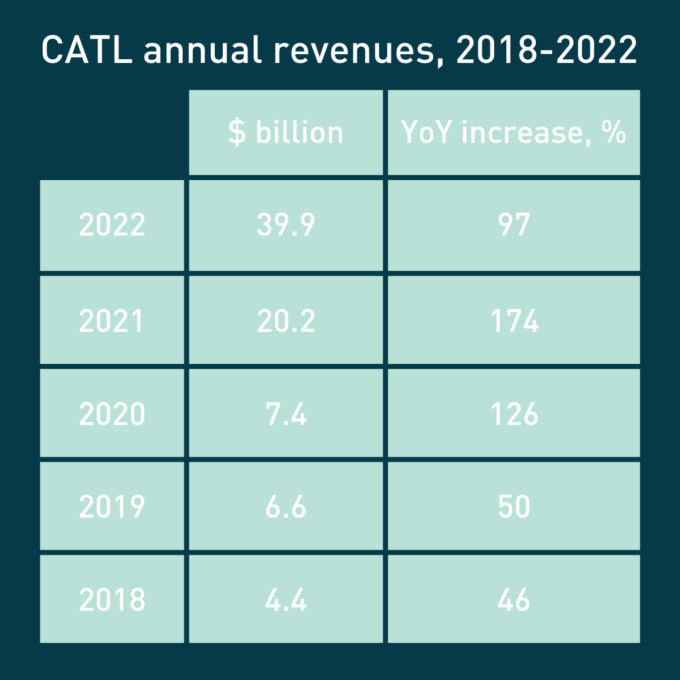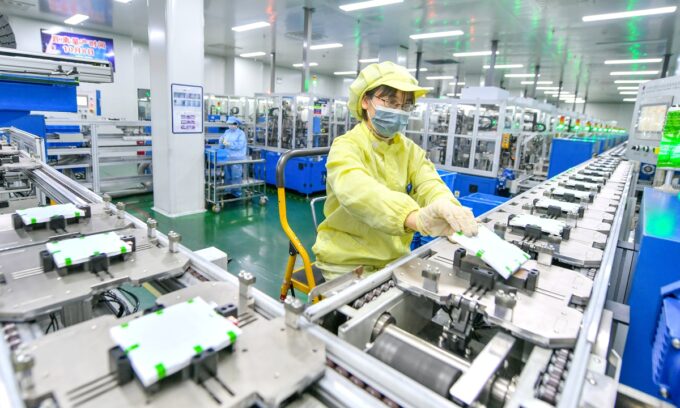
Can AI ever be “just another teammate”?
As AI grows more capable, HR leaders must carefully weigh its impact on team dynamics before treating it as just another teammate, says IMD’s Ginka Toegel....

by Mark J. Greeven Published August 3, 2023 in Innovation • 6 min read
Ford’s announcement in mid-February that it would be collaborating with China’s largest electric vehicle battery maker CATL on a $3.5bn battery plant in Michigan has raised eyebrows for a number of reasons.
Not only is it one of the biggest Sino-US tie-ups of recent years, but, assuming it goes ahead, it would install Chinese technology at the heart of Ford’s plans to become an electric vehicle giant – and has the potential to rework the US’s automotive landscape.
Despite only being founded in 2011, CATL is now by far the world’s biggest maker of batteries for electric vehicles, with 37% of all battery sales – up from 33% in 2021, according to Seoul-based research firm SNE Research.
Its revenues have soared nearly 10-fold, from $4.4bn in 2018 to $39.9bn in 2022 (see chart). At the start of last year, it and its nearest competitor, South Korea’s LG Chem, both had a production capacity of about 100 GWh.
But with a number of expansion projects already underway over the next few years, this capacity will rise to 600 GWh – far ahead of LG Chem’s plans for 200 GWh and the 160 GWh each of its biggest Chinese rival, BYD, and the US’s Tesla.

Key to CATL’s dominance is China’s emergence as the world’s biggest market for electric vehicles. Total EV sales in the country were around 6.5 million, about two-thirds of the total globally, with more than half powered by CATL batteries.
But why CATL has fared so well both in that market and beyond its borders is down to a number of other factors.
First, it chose the right battery technology. The lithium-based products it has specialized in are less powerful but cheaper to make and safer than the other main varieties based around nickel-cobalt, which are more powerful, but require more expensive materials and are more liable to overheating.
It has also positioned itself well by establishing a leading position in the sodium-ion technologies that look likely to play an important role in the stationary storage battery systems used in renewable energy projects.
Second is its proven ability to slash the cost of manufacturing its batteries while increasing their quality. Between 2010 and 2022, the price of lithium-ion battery packs fell nearly 90%, from around $1,100 per kilowatt hour to less than $130 in China, largely due to CATL’s efforts. The company spends heavily on R&D, investing more than US$500 million in recent years, more than 7% of its turnover. It now has nearly 6,000 R&D staff working across three R&D centers in China and one in Germany.
Third is the company’s visionary founder and CEO, Zeng Yuqun, often referred to in English as Robin Zeng, who had previously founded and sold a company called ATL, a leading developer and manufacturer of lithium polymer batteries for mobile phones and other small electronic devices.
Core to CATL’s success has been Zeng’s ability to reach strategic agreements both in China and overseas. Deals with BMW and Tesla have brought CATL income, technical support, and quality demands that have compelled CATL to continually raise its standards.

With Intel Capital, the US chipmaker’s venture arm, and three other partners, it has invested $500 million in Chinese premium electric vehicle brand Zeekr Intelligent Technology, part of Geely Auto one of China’s leading private automakers.
To ensure the company’s continuing access to the raw materials it needs, CATL has bought stakes in lithium mines in Argentina and Australia, a $6bn nickel mining and processing scheme in Indonesia, and part of a cobalt mining business in the Democratic Republic of the Congo.
Also in Indonesia, CATL is setting up a $2bn green electric vehicle fund with the Indonesia Investment Authority, the country’s sovereign wealth fund and the international arm of China Merchants Bank.
And most recently, CATL has committed itself to the future of battery recycling. In February this year, it unveiled a $3.5bn industrial park project in south China’s Guangdong province capable of processing 500,000 tons of spent batteries annually.
Given the scope and scale of its existing and planned investments, it looks like no other company could displace CATL’s world-leading status this decade. And yet, if it is to retain that crown in the longer run, several major issues will have to be resolved.
For a start, battery technology is far from settled, and while CATL faces no other single major competitor, many other companies are looking to establish themselves in one niche or another of the battery industry. It is possible that other companies could emerge with new technologies that could eat away CATL’s leading position over the next several years.
Then there are the risks of being a founder-led business. A global company needs a strong leadership team, not just a strong leader. So far, CATL’s broader executive team has had little visibility. With Zeng still only in his mid-50s, it may be too early to think of succession as an issue. But there remains the question of whether too much rests in his hands alone.
Still, what perhaps is most intriguing about CATL is its clear potential to establish itself as one of China’s first truly multinational giants, supplying the world’s biggest auto makers with the world’s best batteries.
Finally, there is the threat posed by geopolitics. Last December saw CATL open, on schedule, its first plant outside China, to supply BMW at Thuringia in Germany. It has signed agreements to build a plant in Hungary in partnership with Mercedes-Benz, due to open in 2027, and a third European facility, which could also serve Volkswagen and Stellantis, is already being discussed.
In the US, however, although it established its first North American presence in Detroit in 2018, subsequent expansion plans were put on hold as US-China tensions mounted until February’s signing of its agreement with Ford.
For now, Ford thinks the risk of being associated with a Chinese company is not too great to go ahead with this scheme. But that could change – in late July, Republicans on two committees in the US House of Representatives asked for more information about the deal, saying they were concerned about possible links between CATL and forced labor and Ford becoming too reliant on Chinese technology.
Even whole-scale decoupling between the West and China, however, would not kill CATL. The Chinese domestic market alone would be enough to ensure its continuing existence on a massive scale – and with Chinese EV makers looking ever more likely to emerge as the major suppliers to developing markets around the world, it can only remain one of the world’s leading battery makers for the foreseeable future.
Still, what perhaps is most intriguing about CATL is its clear potential to establish itself as one of China’s first truly multinational giants, supplying the world’s biggest automakers with the world’s best batteries.

Professor of Management Innovation, Dean of IMD Asia, Chief Executive of IMD China
Mark Greeven is Professor of Management Innovation and Strategy and Dean of Asia at IMD, where he co-directs the Building Digital Ecosystems program and the Strategy for Future Readiness program. Drawing on two decades of experience in research, teaching, and consulting in China, he explores how to organize innovation in a turbulent world. Greeven is responsible for the school’s activities and outreach across Asia and is a founding member of the Business Ecosystem Alliance. He is ranked on the 2023 Thinkers50 list of global management thinkers.

August 15, 2025 • by Ginka Toegel in Innovation
As AI grows more capable, HR leaders must carefully weigh its impact on team dynamics before treating it as just another teammate, says IMD’s Ginka Toegel....

July 29, 2025 • by Jean-François Manzoni in Innovation
Rohit Jawa, CEO of Hindustan Unilever, outlines how he is reshaping the company’s strategy to meet the evolving needs of India’s growing middle class, leveraging digital transformation, talent development, and a future-focused...

July 23, 2025 • by Howard H. Yu in Innovation
To continue to grow at the exceptional rates we have seen over the last two decades, Chinese automakers need to conquer markets outside of China. However, they face significant strategic and cultural...

July 10, 2025 • by Tomoko Yokoi, Michael R. Wade in Innovation
The healthcare and pharmaceutical sectors are experiencing radical evolution through artificial intelligence, driving competition, and improving clinical outcomes. IMD's AI Maturity Index highlights effective approaches from industry frontrunners like Bayer, Medtronic, and...
Explore first person business intelligence from top minds curated for a global executive audience